Hopes, disappointments and this year’s Ekushey Boi Mela
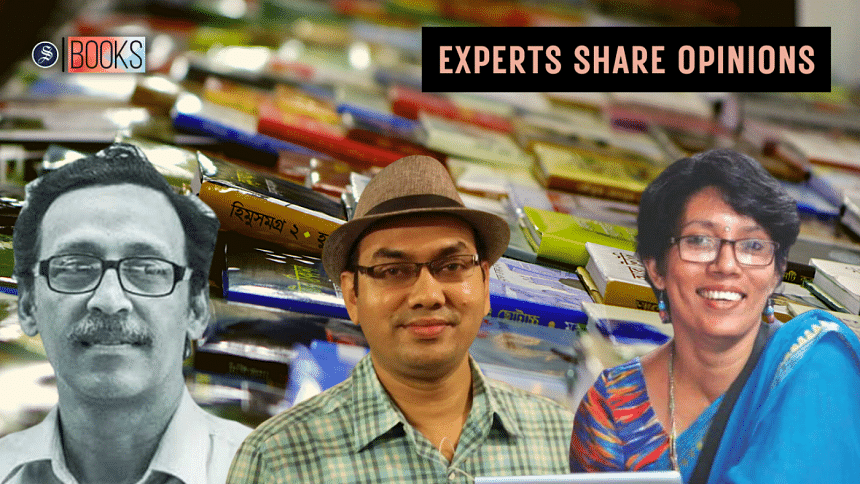
The 2023 Amar Ekushey Boi Mela has kicked off amid fanfare as well as controversy. This is the first edition of this book fair since the pandemic, during which the sales of books and number of visitors were significantly affected. Speaking to Anupam Debashis Roy of The Daily Star, writers, activists and publishers share their thoughts about their hopes and anxieties regarding this year's Boi Mela.
Altaf Parvez
Writer and researcher
In recent times, writers, journalists, singers, theatre workers, filmmakers and other creative people have been subjected to heavy censorship and surveillance. It is bad not only for creatives in the field, but also for the country itself. The dearth of good plays, films, or novels in recent times is a result of this new culture of censorship.
Adarsha has already been banned from participating in this year's Boi Mela. What is the basis of this exclusion? Who are making these decisions? Bureaucrats? Does that mean that they get to judge culture and give out certificates to whom and what they like?
The way we are hearing about the monitoring of books and book stalls, one would think that writers and artists are enemies of the state. But were they not the first ones to involve themselves in our struggle for liberation and democracy?
I believe that the main message of this monitoring is to tell talented writers, artists, and dissenters to leave the creative sector. And that is exactly what is happening in reality. I have seen many creative friends leave everything behind. Many are looking for other jobs. Others are working (or fighting tooth and nail) to survive through their work. This goes on to show the sorry state of the creative field in Bangladesh.
I don't believe that we will get redress from the government in this matter. The only way out is a total reform of the state.
If we want to change and redress, we must work for an overhaul of the state system and build a system that aligns with the expectations of the people. Only then can intellectuals freely think and publish with responsibility. I believe that writers and thinkers are now faced with another political struggle. The sooner they realise it, the better.
Dipankar Das
Owner, Baatighar
This year's Boi Mela is especially significant. Boi Mela did not take place properly in the last two years. The Boi Mela did take place in 2021 and 2022, but people were reluctant to join the mela because of Covid concerns. This will be the first proper Boi Mela after 2020, meaning that it's the first in the post-Covid era. People, now, are not afraid like before. Therefore, we expect that this Boi Mela will be much better than the ones before.
However, because of various reasons including the Russia-Ukraine war and the price hike of everyday commodities, the purchasing power of book buyers may be affected. We are all spending a lot more now than before, even on transportation costs. The price of paper has has almost doubled. But the prices of books have gone up by only 25-30 percent. We are hoping that the readers will get acclimated to this soon. We expect that the turnout will be good.
Being a new publisher has its own challenges, but it has its benefits too. There are a lot of publishers who are not here for the business, but only because they are book enthusiasts. A lot of publishers are young. For that, open space and professionalism is necessary. The publication houses need to work year-round, not just wait for the Boi Mela. Everyone should work on this. I agree that the overall situation is now getting better and I hope that this trend will continue in the days to come.
However, there are some concerns that need to be addressed. Not giving a stall to a specific reputed book publisher because of some specific books is definitely a bad example. This never happened before. Whatever the reason may be, this is certainly bad. This will shrink the space for publications in the country.
Samina Luthfa
Associate Professor of Sociology, Dhaka University
Boi Mela is a platform that is supposed to uphold the ideas of freedom of expression, the rights to exercise knowledge, and the right to new ideas and research that challenge hegemonic discourses. That is the Boi Mela that I know. But that is not, sadly, what we see.
This year, Adarsha was not given a stall. But this is not the first instance of something like this happening. We have seen it before as well. In the very recent past when the bloggers were killed, including Avijit Roy, the very same space was used. But the state was unable to give them protection at that time. On the contrary, the government itself jailed bloggers and curtailed their freedom instead. In terms of the state's actions against those who use violence against words, we have seen delays in getting justice. The space for civil and intellectual discussions through words has shrunk: be it Avijit Roy's book or Faham Abdus Salam's book.
If someone wants to refute the points of the published books, they are free to write a book as a rebuttal. But resorting to violence cannot be an option. The sort of cancelling and censorship that we are seeing is not at all conducive to a free environment. We know that the Ekushey Boi Mela is an occasion for our language and culture that signifies our freedom as a nation. Bangla Academy right now is very much deviating from those ideals by targeting publishers and books and we must stand against that.
I would also expect that our publishers will be cognizant of the environment when they promote their products. They should not wrap the whole place with PVC printed banners. The Bangla Academy should attempt to recycle these banners to make the Boi Mela more environmentally friendly.

 For all latest news, follow The Daily Star's Google News channel.
For all latest news, follow The Daily Star's Google News channel. 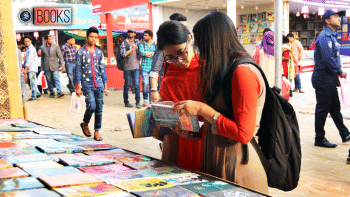
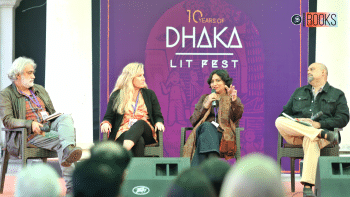
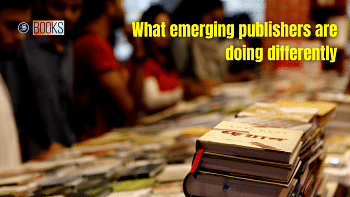


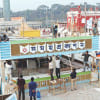
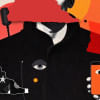

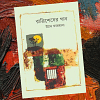
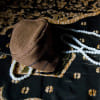


Comments